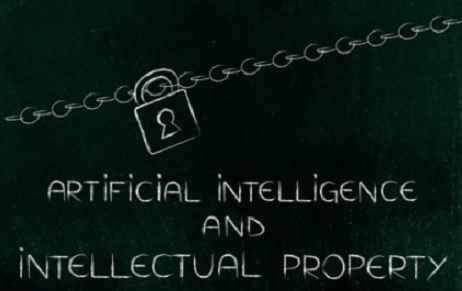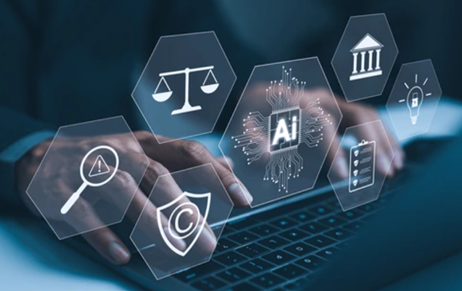Artificial intelligence has a wide range of effects, including on intellectual property law. At best…
Ai And Intellectual Property Rights: Issues And Impacts
Introduction
Artificial intelligence (AI) systems are gaining the ability to generate creative works and useful inventions autonomously. This raises critical questions around assigning intellectual property rights (IPR) like patents and copyrights for AI outputs. IPR regimes worldwide, including India’s, never anticipated machines creating protectable subject matter independently. As AI’s generative capacities grow, India’s legal framework and jurisprudence around IPR will be stressed. This article examines the issues AI poses for copyright and patent law in India and analyses how the regime could adapt to balance incentivizing AI innovation and protecting creators’ interests.
Background
India’s IPR framework derives from the Copyright Act 1957[1] and Patents Act 1970[2], with amendments over the years1. Copyright protects original literary, dramatic, musical, artistic and cinematographic works. Patents cover new inventions with industrial applicability. In both cases, IPR are granted to human creators and owners.
AI systems can now produce works and inventions comparable to human outputs using techniques like machine learning[3]. Two pertinent examples are machine learning models that generate new music compositions or chemical structures with desired properties[4]. Copyright and patent laws did not envisage protecting machine-created subject matter. This lack of clarity around AI’s creations obtaining IPR protection poses issues.
Contemporary Relevance
This policy gap has become more pressing given rapid advances in AI. In 2021, AI system DALL-E 2 demonstrated an ability to autonomously create photorealistic images from text prompts. AI can also now craft literary works, like poems and news stories, tailored to desired styles and themes[5]. Similarly, AI systems have conceived novel scientific hypotheses, designs and drug candidates without full human oversight[6].
As AI applications proliferate across sectors, demand will grow to protect investments in impactful AI systems and their valuable outputs. With current laws ambiguous on AI’s creations qualifying for patents or copyrights, firms may hold back on developing societally beneficial AI. India also risks AI works glutting markets or being unlawfully copied if unprotected. Clarity around IPR for AI is thus required to incentivize innovation and protect creators’ interests.
Critical Analysis
Copyright Law
A key question regarding AI copyright in India is whether computer-authored works meet the originality criterion under Section 13 of the Copyright Act[7]. Courts have interpreted originality as intellectual effort furnished by humans. But training neural networks involves significant human endeavour in curating datasets, designing architectures, etc. Developers argue this effort imbues originality into works like AI-generated music[8].
[Image Sources: Shutterstock]

Amending the law to designate AI developers as owners could incentivize building socially useful AI assistants and content generators. However, some caution this may create monopolies over data used to train models[10]. Nuanced provisions may be needed to balance interests, like compulsory licensing of protected AI works. Infusing human intent into generative processes can also strengthen copyright claims. India’s jurisprudence around AI copyright will likely evolve case-by-case.
Patent Law
India’s patent regime faces similar quandaries around AI. Under Section 2(1)[11] of the Patents Act, AI developed inventions like new chemicals or devices may meet patentability criteria of novelty, utility and industrial applicability. However, such works may not demonstrate sufficient inventive step since the AI system rather than a human brain conceived the invention16. This could preclude patentability.
Again, developers try asserting their efforts training the model should count17. But others argue the critical inventive aspect under law is conceiving the final patented product or process, which AI does autonomously[12]. Section 6’s terminology of identifying a human “true and first inventor” also suggests difficulty accommodating AI inventors[13]. Like copyright, approaches are debated like designating the programmer or user as deemed inventor for AI creations.
Clearer guidelines are required on evaluating and assigning patents for AI outputs. Suitably defining inventiveness for AI systems, while upholding patent law’s intent of protecting true human inventors, will be key. India could emulate US and UK patent office moves to allow naming AI systems alongside humans as joint applicants on patents they contributed to21. Overall, India’s patent law will require modernizing to appropriately incentivize AI innovation.
Conclusion
India boasts a robust IPR framework that has fueled creative and inventive progress. However, AI systems developing their own protectable works and inventions independent of human ingenuity put this regime on unsure footing. Ambiguity around AI copyright and patents may disincentivize developing socially beneficial AI applications. However, wholesale IPR protection for all AI outputs risks congesting markets and disregarding human authorship.
India will need to take a balanced approach that nurtures AI innovation through limited monopolies, while upholding IPR’s intent to protect original human expression. This will likely entail nuanced assessments of AI works to gauge the level of human intent and control involved. Shareable IPR between human developers and AI systems is also an area of promise. With thoughtful evolution of IPR norms, India can harness AI’s potential while still safeguarding human interests. The time is now to proactively shape an IPR regime that encourages and regulates AI as a creative force.
Author: Vanshika Vashishat, in case of any queries please contact/write back to us via email to chhavi@khuranaandkhurana.com or at IIPRD.
[1]Copyright Act, 1957, No. 14, Acts of Parliament, 1957 (India).
[2]Patents Act, 1970, No. 39, Acts of Parliament, 1970 (India).
[3]Guadamuz, A. (2017). Artificial intelligence and copyright. WIPO Magazine.
[4]Coding Creativity: Copyright and the Artificially Intelligent AuthorStanford Technology Law Review, Vol. 5, pp. 1-28 (Spring 2012).U. of Pittsburgh Legal Studies Research Paper No. 2011-25
[5]Chakraborty, Amrita & Kar, Arpan. (2017). Swarm Intelligence: A Review of Algorithms. 10.1007/978-3-319-50920-4_19.
[6]Ryan Abbot,Everything is Obvious,66 UCLA L. Rev. 2 (2018)
[7]The Copyright Act, 1957, §13, No. 14, Acts of Parliament, 1957 (India).
[8]Ramakrishna B & Anil Kumar H.S., Fundamentals of Intellectual Property Rights: For Students, Industrialist and Patent Lawyers (2017).
[9]Guadamuz, A. (2021). Do androids dream of electric copyright? Comparative analysis of originality in artificial intelligence generated works. Intellectual Property Quarterly, (2), 169-186.
[10]Ibid.
[11]The Patents Act, 1970, §2(1), No. 39, Acts of Parliament, 1970 (India).
[12]Yanisky-Ravid, S., & Liu, X. (2018). When artificial intelligence systems produce inventions: An alternative model for patent law at the 3A era. Mich. St. L. Rev., 2018, 839.
[13]The Patents Act, 1970, §6, No. 39, Acts of Parliament, 1970 (India).



